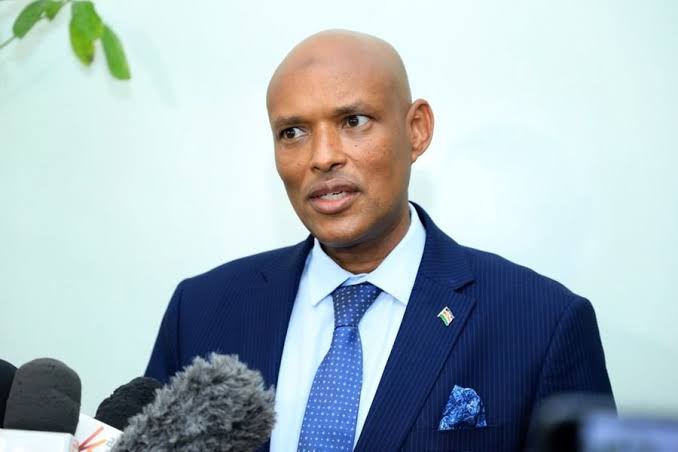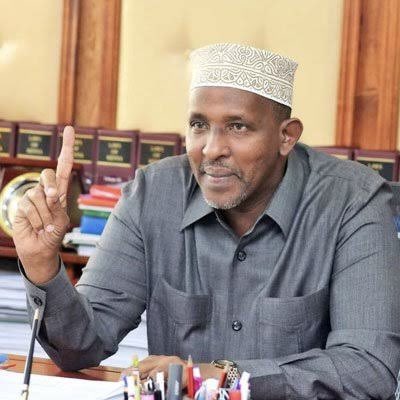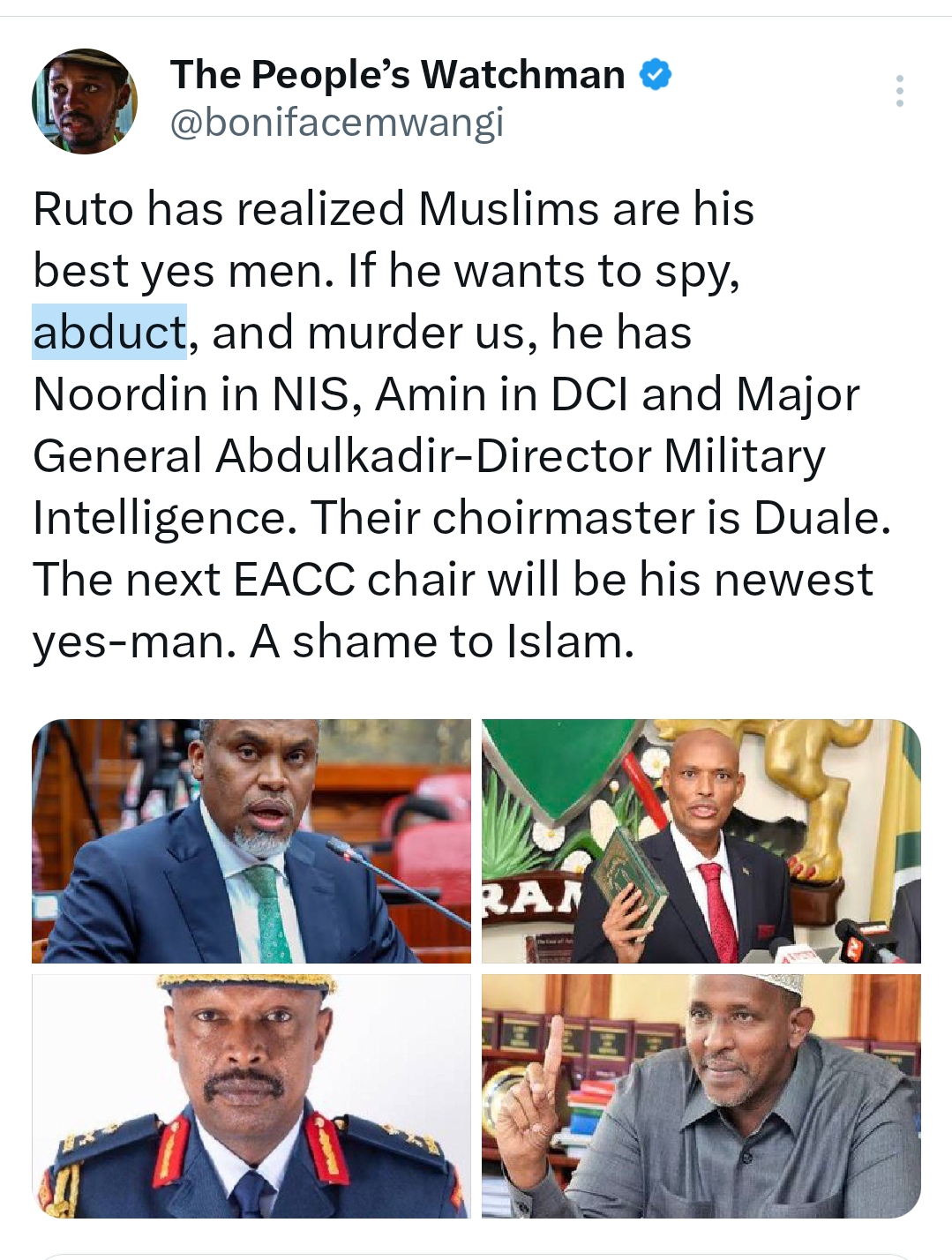Activist Boniface Mwangi has raised an alarm over what he calls the “Muslimification” of Kenya, accusing President William Ruto of strategically placing Somali-Muslims in key government positions.
Mwangi’s remarks come after the National Assembly’s Justice and Legal Affairs Committee approved Abdi Ahmed Mohamud, the Deputy CEO of the Ethics and Anti-Corruption Commission (EACC), to become the new EACC chair.

DCI Boss Mohamed Ibrahim Amin during a past media presser. Photo: The Star Source: Facebook
In a statement posted on X, Mwangi argued that Ruto is systematically placing Somali-Muslim figures in powerful positions across the country.
He highlighted individuals such as Noordin in the National Intelligence Service (NIS), Amin in the Directorate of Criminal Investigations (DCI), and Major General Abdulkadir, who serves as Director of Military Intelligence, as examples of this growing trend.
Mwangi believes these appointments are meant to ensure loyalty within key security agencies, making it easier for Ruto to execute his agenda unchecked.

“Their choirmaster is Duale,” Mwangi remarked, referencing Defence Cabinet Secretary Aden Duale, a prominent leader from the Somali-Muslim community.
He expressed concerns that such appointments are further centralizing power within one community, potentially marginalizing others.
Mwangi also voiced his disapproval of Mohamud’s nomination as the new EACC chair, suggesting that it would simply be another example of Ruto strengthening his control over government institutions.
“This is a shame to Islam,” he said, implying that the community is being manipulated for political gain.
Mwangi’s comments have sparked a broader debate on Kenya’s political landscape, with critics accusing the government of favouring a particular community in positions of power, undermining Kenya’s diversity and inclusivity.



